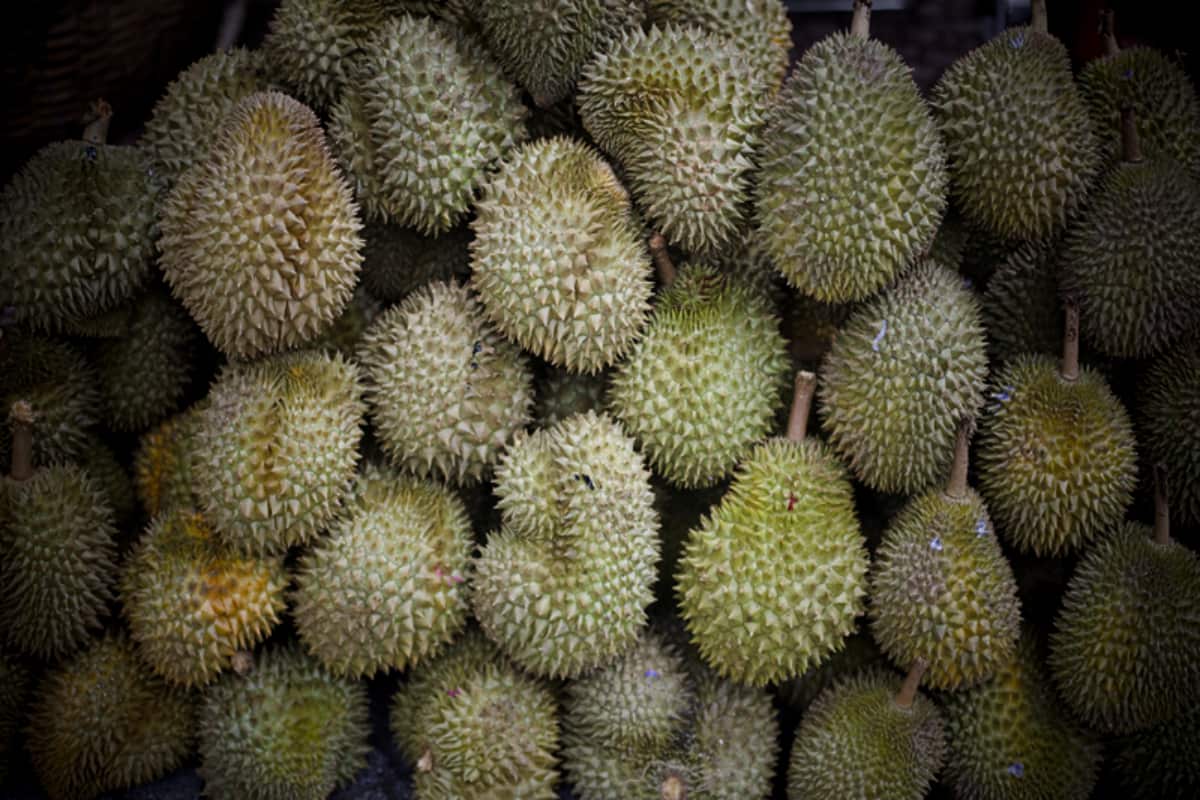Durian is known as the “king of fruit” in Southeast Asia, despite its notorious odor. Because of this quality, passengers on Singapore’s Mass Rapid Transit are prohibited from carrying the fruit while on the system – with fines awaiting violators.
Even though durian is shunned because of its strong scent, this spiky fruit with sweet, custard-like seeds inside is packed with nutrients. A cup of durian pulp provides 83 percent of the recommended dietary allowances (RDA) of vitamin B1 and 64 percent of vitamin C for adult women. The same amount provides 76 percent of the RDA of vitamin B1 and 53 percent of vitamin C for adult men.
Moreover, this stinky fruit is rich in nutrients such as beta carotene (a precursor to vitamin A), vitamin C and various B vitamins like folate (vitamin B9), niacin (vitamin B3), riboflavin (vitamin B2) and thiamine (vitamin B1). Incidentally, thiamine and other compounds in durian that contain volatile sulfur compounds are to blame for its smell that often turns off many.
Research has shown that this notorious fruit, said to “smell like hell and taste like heaven,” can fight the Big C. A recent study published in Nutrients expounded on the effects of durian pulp extract on the HL-60 cancer cell line, with the latter often linked to leukemia.
God Bless You and Your Families!
Love,![]()
![]()

Please think about donating below.


